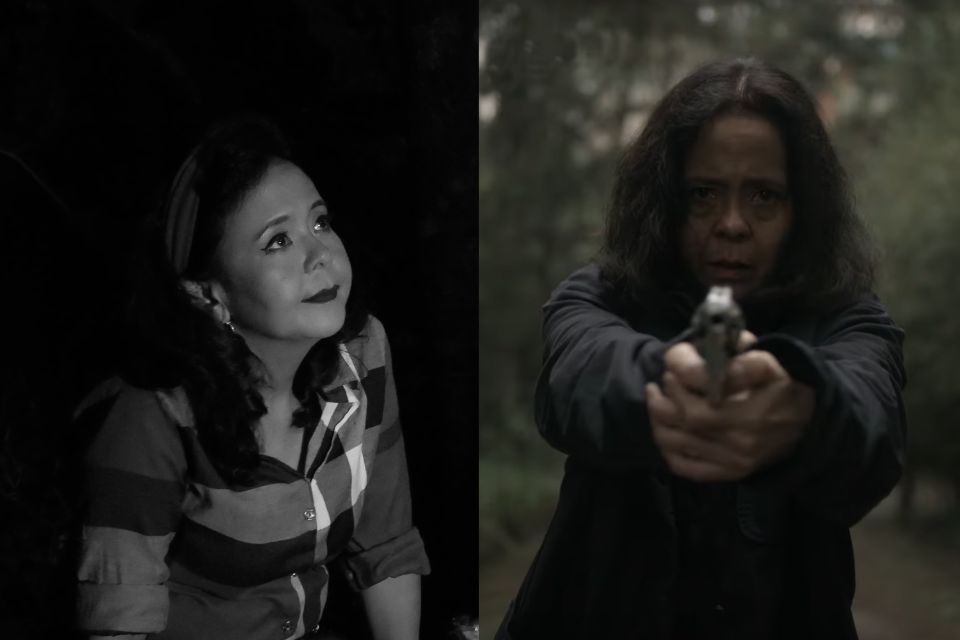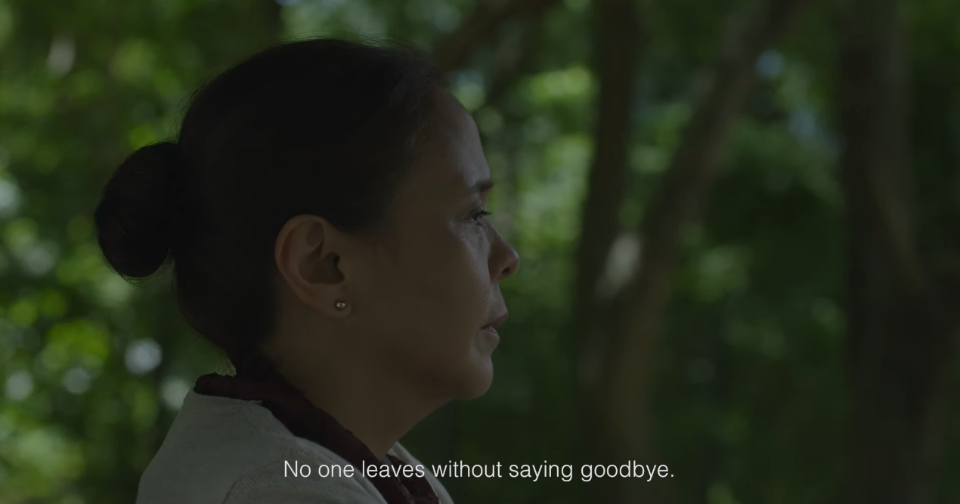Written by Jason Tan Liwag

After her star-making turn in Ruben Östlund’s “Triangle of Sadness,” Dolly de Leon has quickly become an international obsession. Film critics such as Neil Young, Guy Lodge, Jason Gorber, and David Ehrlich have been singing their praises, with Variety’s Clayton Davis even placing her in the early Oscars conversation alongside Michelle Yeoh. Now that the Palme d’Or-winning social satire is set to be distributed by NEON — the company responsible for the successful campaigns of films like “Parasite,” and “The Worst Person in the World” — the odds that de Leon will be at the Oscars does not seem so far off.
Despite receiving the loudest round of applause after the premiere, de Leon still finds trouble believing in her success. “To be honest, I have not broken out in the Philippines,” she says in an interview with Manori Ravindran of Variety, explaining that, up until recently, “bit roles” have constituted her body of work in TV and film.
View this post on Instagram
It’s easy to draw connections between her and her character Abigail — a toilet manager at a luxurious yacht who, after a series of (un)fortunate events, suddenly finds herself in a position of power. Knowledgeable of the power dynamics and the stereotypical depictions of overseas Filipino workers (OFWs) and domestic helpers, de Leon applauded Östlund’s choice to reverse hierarchies. “I thought it was a really fantastic idea,” says de Leon at the press conference in Cannes. “To bring us up in a place where we normally don’t feel like we’re in because we come from underprivileged families and we’re a developing country.”
To an international audience unfamiliar with de Leon’s work, both are underdogs that seem to rise out of nowhere. While this level of acclaim for a Filipino actor may seem surprising, those who know de Leon and her body of work will agree that it is long overdue, if not tepid compared to the scale of her talents.
De Leon began her acting career through the BA Theater Arts program at the University of the Philippines Diliman, where she was mentored by the late Tony Mabesa. Dulaang UP and Dulaang UP Laboratoryo became a playground for experimentation and was her oasis for the decades to come. She’d hone her talents and deliver critically acclaimed performances in stage productions such as Leila Shahid in “Bilanggo ng Pag-Ibig,” Gregoria de Jesus in “Oryang: Las Viajeras,” and multiple roles in José Estrella’s “Sepharad.”
While considered a newcomer in the international scene, Filipino audiences have encountered de Leon in one way or another, her face recognizable even if one cannot always connect her with a name. De Leon would work the next decade as an actor in a variety of daytime and primetime telenovelas such as “Sa Dulo ng Walang Hanggan” and “Pintada.” In 2014, she received critical acclaim for her performance as flamboyant eldest sister-turned-loan shark Linda in Virgin Labfest’s “Ang Naghihingalo” and the widowed Mrs. Lunga in Tanghalang Ateneo’s “Middle Finger” — with Cora Llamas describing the latter as one that “transcend(s) stereotypes to become something intuitively genuine and real.”
But the scale of critical success de Leon had in theater was not as easily replicated in the screen arts, with her only recently landing the lead role in Erik Matti’s “7 Days of Hell” — an episode in the second season of the HBO anthology series “Folklore.” With nearly four decades in acting, Dolly de Leon has been the face of many nameless Filipinas — from her first screen credit as a dormmate in “Shake Rattle & Roll III” to a doctor in “Diary ng Panget” to Rizalista leader in “Babae sa Septic Tank 3.”
Despite this, de Leon’s involvement in Östlund’s “Triangle of Sadness” is unsurprising, largely because her best work always weaves in politics: from starring in Rody Vera and Loy Arcenas’ Martial Law reimagining of Anton Chekhov’s “The Three Sisters;” to playing May in Dennis Marasigan’s film adaptation of “Anatomiya ng Korupsyon;” to producing a series of plays surrounding martial law called “Never Again: Voices of Martial Law” following the burial of Ferdinand Marcos Sr. in the Libingan ng mga Bayani in 2016; to performing a heart-wrenching reading of Leila de Lima’s poem “Sa Bilangguan,” which narrates the senator’s experience of being a political prisoner.

Even if her work does not deal directly with these historical atrocities, her roles have always been involved in narratives that question existing power structures: from her work as the sex worker Dahlia in Lav Diaz’s “Historya ni Ha,” as the mother Ella in Dodo Dayao’s “Midnight in a Perfect World,” and in her FAMAS-winning turn as Elsa in Raymund Ribay Gutierrez’s “Verdict.” Even her more humorous roles such as ‘Daks Chaser’ — a middle-aged woman struggling to get back into the dating scene — in Antoinette Jadaone’s “The Kangks Show” still play a part in questioning gendered expectations of women, and the role of beauty and youth as currency in society.
The magic of de Leon’s artistry is rooted in this understanding of the politics that influence how stories and the characters within them are shaped. Drawing from stories of friends and loved ones who are OFWs, she also later narrated in an interview with CNN Philippines how she used the foreignness of the filming experience to inform her characterization. She is an actress who understands that stories are borrowed and to do them justice means to live them out truthfully onstage and onscreen.
View this post on Instagram
“Never look at what you do as something small,” she says, days after being photographed on the red carpet, Palme d’Or in hand. “Everything that we do is big. All of the things we do eventually lead up to an end goal we are all looking for.” Such empathetic, complex, and even humorous work is a culmination of decades of observing, a commitment to telling stories from the fringes, and can only come from an artist whose art is rooted in activism.
Source: https://www.cnnphilippines.com/life/entertainment/Film/2022/6/7/dolly-de-leon-acting-as-activism.html
